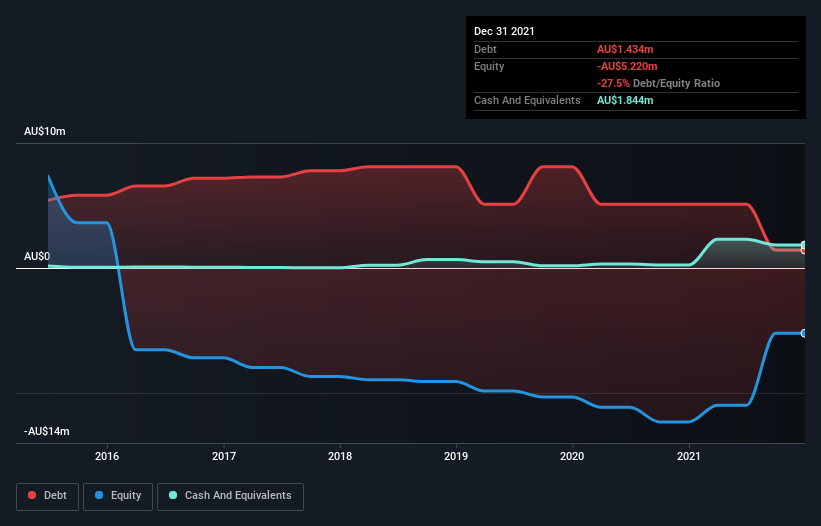Further weakness as Gas2Grid (ASX:GGX) drops 25% this week, taking one-year losses to 14%
This month, we saw the Gas2Grid Limited (ASX:GGX) up an impressive 50%. But in truth the last year hasn't been good for the share price. In fact the stock is down 25% in the last year, well below the market return.
After losing 25% this past week, it's worth investigating the company's fundamentals to see what we can infer from past performance.
Check out our latest analysis for Gas2Grid
Gas2Grid didn't have any revenue in the last year, so it's fair to say it doesn't yet have a proven product (or at least not one people are paying for). You have to wonder why venture capitalists aren't funding it. As a result, we think it's unlikely shareholders are paying much attention to current revenue, but rather speculating on growth in the years to come. For example, they may be hoping that Gas2Grid finds fossil fuels with an exploration program, before it runs out of money.
Companies that lack both meaningful revenue and profits are usually considered high risk. There is usually a significant chance that they will need more money for business development, putting them at the mercy of capital markets to raise equity. So the share price itself impacts the value of the shares (as it determines the cost of capital). While some companies like this go on to deliver on their plan, making good money for shareholders, many end in painful losses and eventual de-listing.
Our data indicates that Gas2Grid had AU$5.2m more in total liabilities than it had cash, when it last reported in December 2021. That makes it extremely high risk, in our view. But with the share price diving 25% in the last year , it's probably fair to say that some shareholders no longer believe the company will succeed. You can click on the image below to see (in greater detail) how Gas2Grid's cash levels have changed over time.
Of course, the truth is that it is hard to value companies without much revenue or profit. Given that situation, would you be concerned if it turned out insiders were relentlessly selling stock? It would bother me, that's for sure. You can click here to see if there are insiders selling.
What about the Total Shareholder Return (TSR)?
We've already covered Gas2Grid's share price action, but we should also mention its total shareholder return (TSR). Arguably the TSR is a more complete return calculation because it accounts for the value of dividends (as if they were reinvested), along with the hypothetical value of any discounted capital that have been offered to shareholders. Gas2Grid hasn't been paying dividends, but its TSR of -14% exceeds its share price return of -25%, implying it has either spun-off a business, or raised capital at a discount; thereby providing additional value to shareholders.
A Different Perspective
Investors in Gas2Grid had a tough year, with a total loss of 14%, against a market gain of about 8.9%. Even the share prices of good stocks drop sometimes, but we want to see improvements in the fundamental metrics of a business, before getting too interested. Longer term investors wouldn't be so upset, since they would have made 3%, each year, over five years. It could be that the recent sell-off is an opportunity, so it may be worth checking the fundamental data for signs of a long term growth trend. It's always interesting to track share price performance over the longer term. But to understand Gas2Grid better, we need to consider many other factors. To that end, you should learn about the 5 warning signs we've spotted with Gas2Grid (including 4 which shouldn't be ignored) .
If you like to buy stocks alongside management, then you might just love this free list of companies. (Hint: insiders have been buying them).
Please note, the market returns quoted in this article reflect the market weighted average returns of stocks that currently trade on AU exchanges.
Have feedback on this article? Concerned about the content? Get in touch with us directly. Alternatively, email editorial-team (at) simplywallst.com.
This article by Simply Wall St is general in nature. We provide commentary based on historical data and analyst forecasts only using an unbiased methodology and our articles are not intended to be financial advice. It does not constitute a recommendation to buy or sell any stock, and does not take account of your objectives, or your financial situation. We aim to bring you long-term focused analysis driven by fundamental data. Note that our analysis may not factor in the latest price-sensitive company announcements or qualitative material. Simply Wall St has no position in any stocks mentioned.

 Yahoo Finance
Yahoo Finance 
